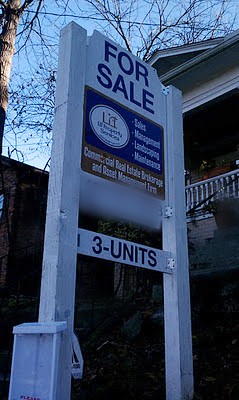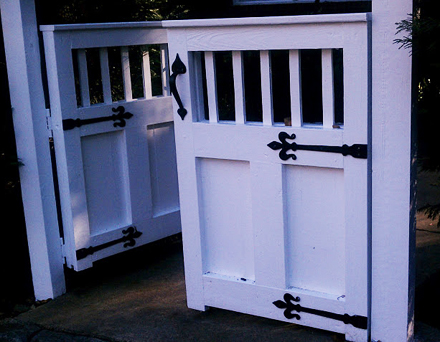I’m making a massive change in my search for my next rental house.
I’ve spent the past year searching for another rental house within walking distance of Atlanta’s most vibrant city park.
It’s one of the most desirable neighborhoods in Atlanta, especially among young professionals who want to live in walking distance to martini bars and yoga studios.
We bought a great rental house in this neighborhood once; surely we could do it again, right?
It seems the answer is “no.” Every house I’ve looked at for the past year has a negative cash flow. This neighborhood is too desirable; the value of the underlying land is too high.
For Example …
One 4-plex in this area just came on the market for $400,000. If I put 10 percent down and locked in a 4 percent interest rate with 1 percent primary mortgage insurance, the mortgage would be $2,200 per month.
Each unit is a small one-bedroom with low ceilings, so I could collect roughly $750 in rent per unit, or $3,000 per month.
I hope you can already see that this is a losing deal. After insurance, water, trash, management, repairs, maintenance and vacancies, I’d be bleeding money every month.
The prices in this neighborhood simply haven’t fallen enough to make the rental income outshine the cost of ownership. The underlying land value is too strong. The house we bought, clearly, was the exception to the rule — the diamond in the rough.
Flipping a House vs. Holding a Rental House
When you’re “flipping” a house — buying for the sake of selling — a high land value is your strongest asset.

When you’re “holding” a house — buying for the sake of collecting rent — you want cheap land value plus a great building in a tenant-friendly zone.
It sounds like a subtle difference, but trust me: this distinction is HUGE. It can spell the difference between success and failure in real estate.
That’s why it’s essential to know why you’re buying.
That’s why I cringe when I hear someone say, “I’d like to collect rent, but I also want the price to rise so I can sell it. And maybe I also want to live there someday.”
They’re really saying: “I don’t have a strategy. I want it all.”
If you’re buying a rental, you need to know:
- Do people rent in this neighborhood?
- What type of renters does this attract? (Students, families, etc.)
- How many bedrooms are there? What can I collect “per bedroom”?
- What are the monthly expenses? (Water, trash, taxes, etc.)
- How does that compare to the average rental income in the area?
- How soon do the appliances need to be replaced?
- What repairs does this building need?
- The focus is on the BUILDING, the number of BEDROOMS, and the TENANTS.
If you’re buying for the sake of price appreciation, you want to know:
- Are people and businesses buying property in this area?
- How quickly is this area growing?
- Does this location have a competitive advantage that can’t be replicated? (Maybe it’s close to the city’s flagship park, or it’s in the best school district in the state.)
- The focus is on the LOCATION.
You might get lucky and find the best of both worlds. I certainly did with my first house.
But when you’re evaluating a property, you need sharply-defined criteria. “I want it all” is not a business plan.
Looking at Cheaper Locations
In the past few weeks, I’ve expanded my search to other areas. I’m searching neighborhoods, frankly, that I would never want to live in: Far-flung suburban areas with long commutes. Cookie-cutter houses. Cul-de-sacs.
The houses are cheap because the value of the underlying land is next-to-nothing. You’re paying for the building, not the land.
At the same time, there’s strong economic vitality. There are fast-food restaurants, gas stations and beauty salons. There’s a shopping mall with a Macy’s department store.
In the particular area that I toured last night, every commercial shopping center boasts full occupancy — a promising sign.
Many of the houses in the area are “new construction” homes, indicating that other property developers are investing there.
In short: people want to live there, but they can’t all afford to buy. The rental market there is ripe.
This reminds me — again! — of that famous quote from Roman emperor Cicero: “Refusing to set aside trivial preferences” is one of the mankind’s most common mistakes.
In other words: Just because I don’t want to live in a particular neighborhood doesn’t mean I shouldn’t buy a house there. 🙂
*****
UPDATE 2013: Now I have 4 houses, totaling $30,000 a year in net passive income. Here’s the story of House #1, House #2, House #3 and House #4.
